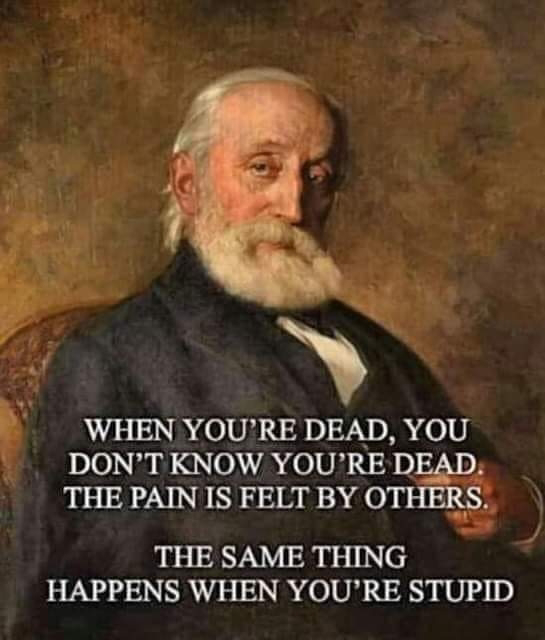The quote in the image offers a stark and somewhat humorous comparison between the state of being dead and the state of ignorance or foolishness.
The quote in the image offers a stark and somewhat humorous comparison between the state of being dead and the state of ignorance or foolishness. It suggests that both death and stupidity create a lack of awareness in the individual but cause suffering or inconvenience to others.
At its core, the quote is a commentary on self-awareness and impact. Death, of course, is the cessation of consciousness, so the dead do not experience their own death, but those left behind feel the loss deeply. In contrast, when one is oblivious or acts foolishly, they may be unaware of the full extent of their actions, while others bear the brunt of the consequences. This could be due to a lack of knowledge, understanding, or empathy.
The comparison, while blunt, serves to highlight how our actions or lack thereof can affect those around us, often disproportionately. This sentiment may lead us to consider how we move through the world, interact with others, and reflect on the wake we leave behind in our personal and professional relationships. It suggests that self-awareness and consideration for others' experiences are valuable and necessary for a harmonious existence.
Furthermore, it touches upon the concept that ignorance is not bliss for everyone—while one may be content in not knowing or understanding, their ignorance can cause issues for others. In a broader sense, the quote could be seen as a call to education and personal growth. It encourages us to strive for knowledge and self-reflection to minimize the negative impact of our ignorance on others.
The humor in the quote lies in its use of hyperbole and the blunt equivalence it draws between death and stupidity. By juxtaposing something as serious and final as death with the more everyday occurrences of ignorance or foolishness, it starkly and memorably makes its point that we should be aware of the effects of our actions and strive to reduce any harm they cause.


